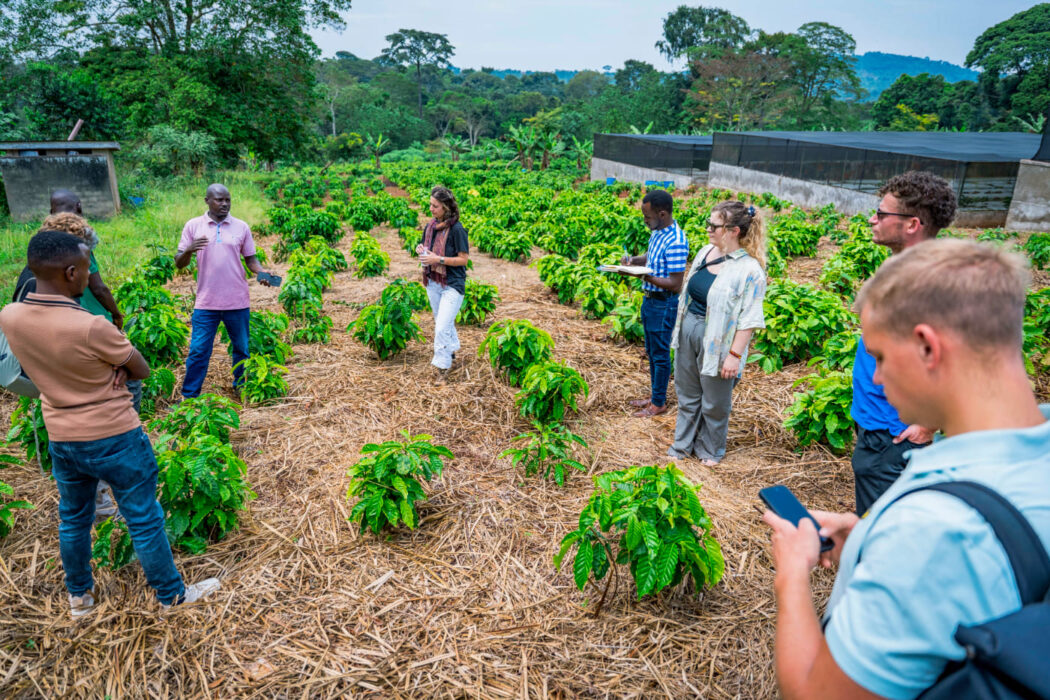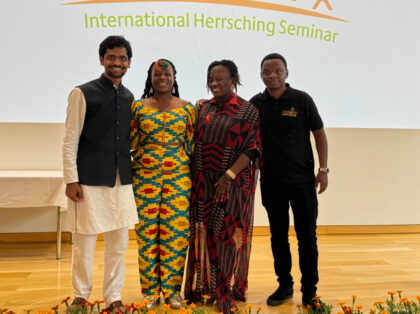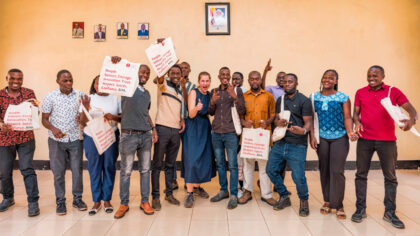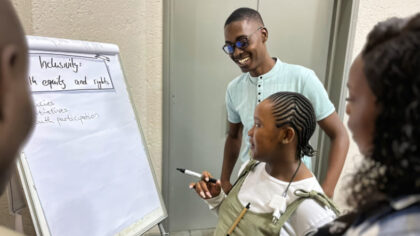Building and Professionalising Youth Organisations
In many countries, youth associations play a crucial role in giving young people a voice, supporting their personal development, and strengthening them as active contributors in rural areas. In Germany – for example, through the Bund der Deutschen Landjugend e.V. or the Catholic Rural Youth Movement – such structures have proven over decades to be important platforms for participation, education, and advocacy.
The AHA supports this model internationally as well: together with farmers’ associations, we establish and professionalise youth organisations so that young farmers can network, exchange knowledge, and represent their interests.
Successful examples include the Young Farmers’ Federation of Uganda (UNYFA), which quickly grew to over 30,000 members; the REJEPPAT network in Togo, which promotes ecological agriculture; and the Association of Young Modern Farmers of Benin (AJAM-Benin), which gives young agripreneurs a voice. These organisations have become recognised partners in agricultural development and key drivers of innovation and future viability.
Promoting Young Leaders in Southern and Western Africa
Farmers’ organisations worldwide face a common challenge: a lack of young agripreneurs willing to take on responsibility – both in farms and in the organisations themselves.
Together with the Southern African Confederation of Agricultural Unions (SACAU) and the West African farmers’ network ROPPA, we have developed specific leadership programmes for young people – the Young Leaders Incubation Programme (YLIP) and the Programme d’Incubation des Jeunes Leaders (PIJeL). Both offer tailored, intensive training designed to strengthen young leaders, enabling them to carve out their own path, succeed entrepreneurially, and actively shape the future of the agricultural sector.
Approximately 20 participants undergo a three-month programme each year, which includes workshops, online sessions, and, where possible, study visits. The training develops self-confidence, communication as well as facilitation skills, and entrepreneurial thinking. Graduates now form a growing network across Southern and West Africa, influencing the agri-food sector and food systems far beyond their own cohorts.
Internship Exchange Programmes
No course of study can replace practical experience. Together with the Schorlemer Stiftung we have been promoting international internships for young farmers for many years.
A highlight is the International Young Farmers’ Exchange Programme (IYFEP) between Uganda and Germany, running since 2019. Young participants live and work for three months in family farms in the other country, gaining valuable hands-on experience, broadening their horizons, and developing personally. The programme nurtures a new generation of farmers in Uganda and Germany, who are professionally competent, culturally open, and forward-looking.
Study Trips and Exposure Visits
Personal exchange and practical experience are crucial to deepen knowledge, gain new perspectives, and build sustainable networks. As an academy, we use a variety of formats to provide young people with these opportunities. For example, the YLIP excursion to Brussels gives young leaders insight into European and global agri-food policy. Through the Schorlemer Stiftung, international internships in “green professions” offer hands-on experience in partner farms combined with professional guidance.
The trips of our Germany TOP Kurs to African partner countries further provide young German leaders with direct exposure to the realities and opportunities of agricultural development on site. These programmes not only support professional and personal development but also foster trust and long-term partnerships across continents.
GenX – Successful Farm Succession
With GenX, we support young and older generations in Africa through the handover of agricultural enterprises. This includes not only family farms but also innovative models that provide young people without their own land with access to farms and opportunities.
The programme focuses on awareness-raising, coaching, and advisory support – aiming to find fair and sustainable solutions for farm succession.
Young Voices for Africa’s Agri-Policy
At the African Youth Agribusiness Forum (AYAF) in 2024, the African Union, together with the German Federal Ministry of Agriculture, Food, and Home Affairs, brought young agripreneurs, policymakers, and stakeholders together. The forum strengthened the voice of young people in agri-policy and developed a “Call to Action” that was presented at international conferences.
The initiative continues, aiming to embed young voices permanently in decision-making processes and to advance the institutionalisation of youth participation in African agri-policy.







